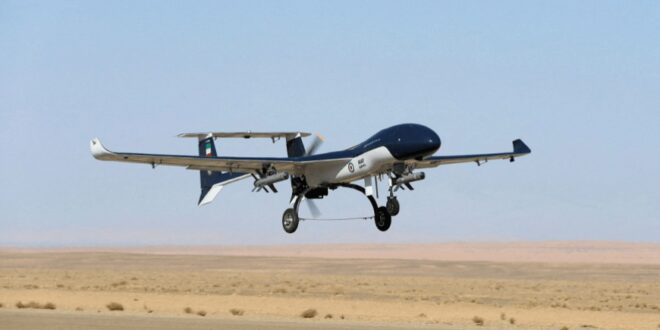As images of the crash circulated, conflicting accounts emerged about the incident, Syria TV writes.
Hours after a drone was reported shot down in the Abu Khashab desert of Syria’s Deir-ez-Zor governorate, urgent reports surfaced of an unidentified flying object landing near the al-Bulil area in the Deir-ez-Zor desert in eastern Syria.
As images of the crash circulated, conflicting accounts emerged about the incident, which took place kilometers south of Deir-ez-Zor city. A correspondent from the Assad regime’s National Defense Forces reported that they had shot down a U.S. drone that had allegedly carried out airstrikes in the al-Bulil area, the same region where clashes with the SDF occurred earlier August.
While details remain unclear, some local sources affiliated with the Assad regime, along with several Iranian outlets, claimed that a U.S. warplane crashed in areas controlled by Iran and the Assad regime in eastern Syria. The Iranian news agency IRNA, citing the al-Mayadeen network, reported that a U.S. fighter jet had crashed in the Deir-ez-Zor region due to a technical malfunction, though its crew was reportedly rescued. IRNA further quoted sources claiming that the fighter jet fell in territory controlled by Iran in the Deir-ez-Zor countryside.
What fell in the Deir ez-Zor desert?
Footage and videos of the wreckage circulating online revealed that the debris did not match that of a large manned fighter jet. Instead, it was evident that the downed object had landed with an orange parachute.
Military experts noted that the parachute seen in the widespread images differed significantly in size and shape from those used by military pilots or airborne forces. The parachute for a fighter pilot typically has a diameter of at least eight meters (24 feet) and is dome-shaped or hemispherical, unlike the umbrella-like parachute seen with this unidentified flying object.
Experts interviewed by Syria TV indicated that the color and type of parachute suggest that the object that fell in the Deir-ez-Zor desert was not an American or Western drone. Unlike Western countries, Syria, Iran, Russia, and other nations that operate Russian warplanes often use this type and colour of the parachute. Multiple open sources suggest that the orange parachute closely resembles that of Iran’s Mohajer-6 drone, making this Iranian drone a likely suspect.
Mohajer-6 and its track record of falling with orange parachutes
Iran’s Mohajer-6 is the latest in its series and is widely used for both civilian and military purposes, including reconnaissance and combat missions. This remotely piloted aircraft has an operational range of over 2,000 kilometers, enabling it to conduct combat and espionage operations in Deir-ez-Zor governorate from deep within Syria or even from Iranian territory. It can carry between 100 to 150 kg of weapons, such as Qaim-5 guided bombs.
The Mohajer-6 is operated within Iran’s borders by the IRGC’s aerospace forces and the Iranian military. Beyond Iran, these drones have been exported or supplied to various regional and international actors, including both governments and non-state entities.
The aircraft that crashed on Wednesday in eastern Syria is likely an Iranian Mohajer-6 drone that lost control and eventually crashed. This drone is equipped with an emergency landing feature, utilizing the orange parachute.
 Eurasia Press & News
Eurasia Press & News




